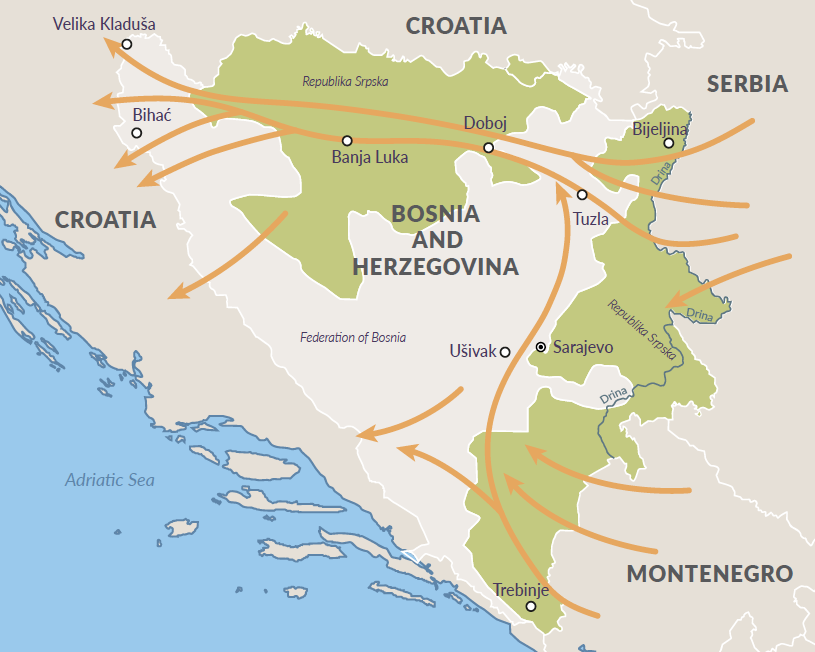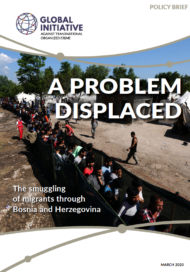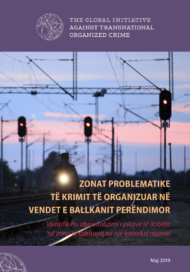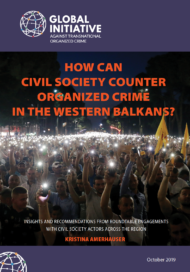Posted on 16 Mar 2020
In 2015, during the massive flow of migrants and refugees travelling along the so-called Balkan route, almost no one attempted to reach Europe via Bosnia and Herzegovina. Yet, since 2018, around 60 000 refugees and migrants have registered temporarily in the country. Why are so many migrants now being smuggled through Bosnia and Herzegovina? What has changed in the past five years to bring about this shift? How organized is this criminal activity, who is involved and what are the routes? This brief addresses these questions, and shows that a problem that was supposed to have been ‘solved’ by the closure of the Balkan route has merely been displaced.

Key points
- Smuggling routes historically used to transport fuel, cigarettes and livestock are today popular paths used by migrants to cross the borders into and out of Bosnia and Herzegovina.
- Border fences erected in the region (e.g. on the Hungarian–Serbian border) triggered a shift in migrant routes.
- Border police are understaffed and lack the technology needed to secure the border.
- Migrants who end up in Bosnia and Herzegovina find it increasingly difficult to move on, particularly to cross the border into Croatia.
- Conditions in the migrant camps have been poor and overcrowding widespread.
- Vulnerable migrants turn to smugglers to help them continue their journey to the European Union.
- Closing the Balkan route may have reduced the number of refugees and migrants entering the EU, but it is increasing pressure on Bosnia and Herzegovina.
- Greater coordination within Bosnia, cooperation between Bosnia and its neighbours, as well as support from the EU and other countries, are badly needed.
Policy briefs on current issues in the Western Balkans will be published on a regular basis by the Civil Society Observatory to Counter Organized Crime in South Eastern Europe. The briefs draw on the expertise of a local civil-society network who provide new data and contextualize trends related to organized-criminal activities and state responses to them.




